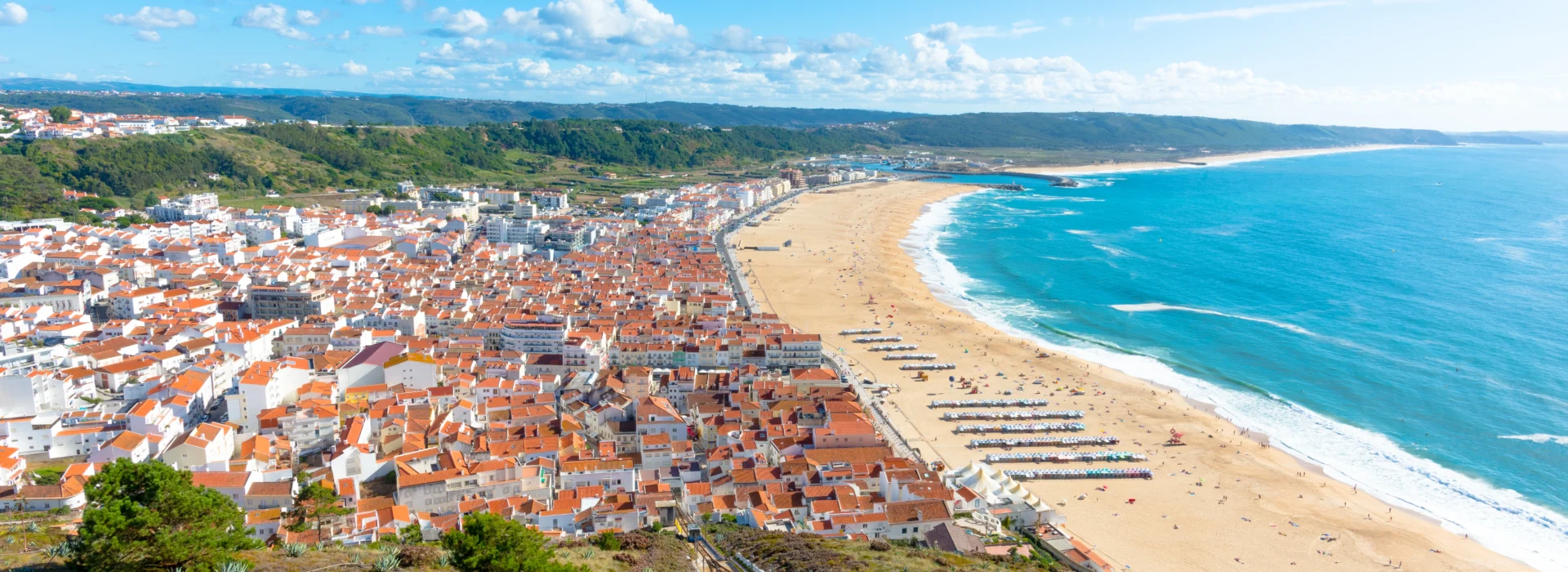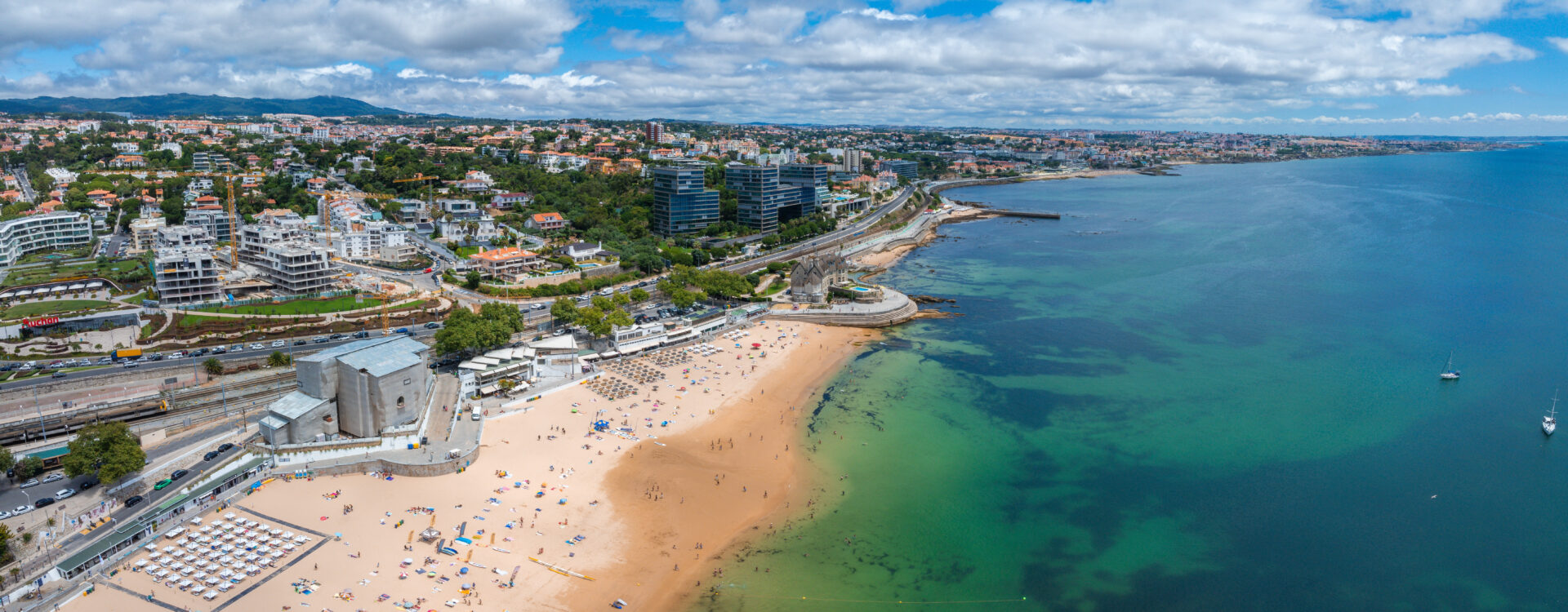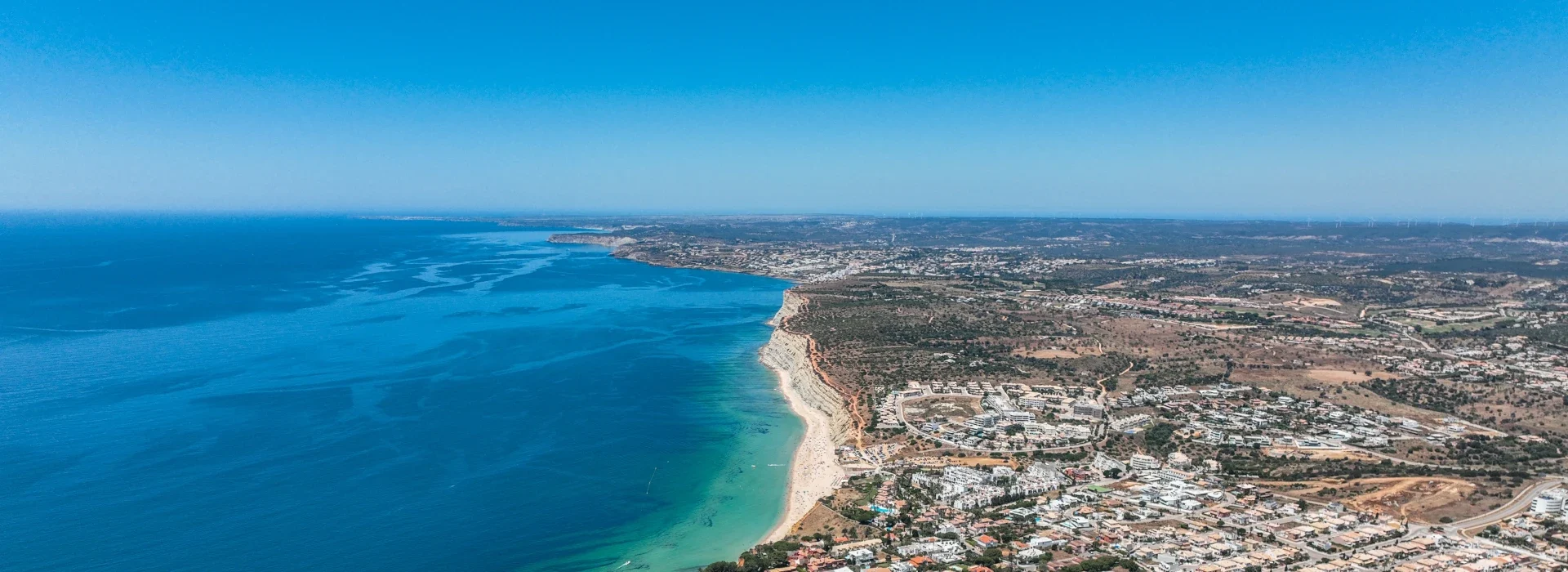Relocating from Canada to Portugal
Interest in moving to Portugal from Canada has grown steadily, driven by lifestyle, climate, and quality-of-life factors. With mild weather, comparatively lower day-to-day costs, and a well-regarded healthcare system, Portugal offers Canadians a balanced and sustainable way of living abroad.
Beyond these advantages, Portugal provides clear legal pathways to residency and is known for safety, stability, and a welcoming culture. Whether your plan is remote work, retirement, or a family relocation, this guide gives a practical overview of what to expect when moving from Canada to Portugal.
For a broader view of life in the country, see our main overview on Moving to Portugal.

Talk to our Team
Table of Contents
Why Canadians Are Choosing Portugal
Migration Trends and Motivations
Canadian interest in relocating to Europe has increased, and Portugal is a frequent choice. Registrations of Canadian residents have risen alongside remote work opportunities and the appeal of a predictable, high quality of life.
Who’s Making the Move
- Retirees prioritizing a mild climate and reliable healthcare access
- Remote professionals leveraging a convenient time difference with North America
- Families seeking international curricula and meaningful cultural exposure
- Entrepreneurs and freelancers using business-focused residence options
Portugal aligns with priorities many Canadians share: a balanced lifestyle, straightforward access to the wider EU, and potential long-term affordability.
Comparing Life in Portugal vs. Canada
Cost of Living
Across common expense categories, day-to-day costs in Portugal are often lower than in major Canadian cities. Rent, dining, transport, and basic services tend to be more affordable, particularly outside Lisbon and Porto. Housing remains the main variable that shapes monthly budgets.
Healthcare Access
Canada’s public system is comprehensive but can involve wait times. Portugal combines a public system — the National Health Service (Serviço Nacional de Saúde, SNS) — with a broad private network. Out-of-pocket costs are typically lower, and private appointments can be faster for diagnostics and specialists.
Climate and Lifestyle
Mild winters and long summers characterize much of Portugal. Outdoor living is part of daily life, and a slower rhythm often supports more time for family and leisure.
Transportation
Urban areas offer extensive public transport, including metro, trains, and buses. In cities such as Lisbon, Porto, and Coimbra, a car is not essential for everyday routines. In rural areas, schedules are less frequent, and driving becomes practical.
Safety and Community Feel
Portugal is widely regarded as safe, with low crime in most areas and a strong sense of community. Newcomers often highlight the approachable, civic-minded culture.
Cultural Transition
Norms differ in pace and formality, but shared courtesy and hospitality make the adjustment manageable for Canadians settling in Portugal.
Residency and Visa Pathways for Canadian Citizens
Entry Requirements
As non-EU nationals, Canadians who intend to stay beyond a short visit generally require a residence visa. Available options depend on income, employment or business plans, and other personal circumstances.
D7 Visa
Suited to retirees and individuals with passive income, the D7 permits long-term residence when applicants can evidence regular income and suitable accommodation.
Digital Nomad Visa
Designed for remote workers earning from abroad. Requires proof of steady income and documentation confirming employment or freelance activity.
D2 Visa for Entrepreneurs
For those starting a business or working independently. Focus on a viable enterprise plan and adequate financial capacity to operate in Portugal.
Path to Permanent Residency and Citizenship
After five years of legal residence, applicants may qualify for permanent residency or citizenship, subject to language proficiency and other integration criteria.
Canada–Portugal Tax Treaty
Both countries have a tax treaty to reduce double taxation risk, which can simplify cross-border planning for Canadians relocating to Portugal.
Choosing the Right Pathway: Quick Comparison
- D7 (passive income): steady pension/investment income; suited to retirees or financially independent applicants.
- Digital Nomad: active remote income from non-Portuguese sources; suited to employees or freelancers working online.
- D2 (entrepreneur/freelancer): business plan, portfolio, or contracts in Portugal; suited to founders and independent professionals.
- Long-term goal: all can lead to permanent residence/citizenship after five years if requirements are met.
How to Move to Portugal from Canada: Step-by-Step Plan
Before You Go
- Select the residence visa that best fits your profile.
- Gather documentation: income evidence, RCMP background check, accommodation proof.
- Arrange private health insurance that meets visa requirements.
- Research housing markets and neighborhoods aligned with your budget and needs.
Applying for a Visa
Submit your application via the competent Portuguese consulate or visa application center in Canada. If approved, you receive an entry visa to travel to Portugal and finalize residence with the immigration authorities.
Securing a Home
Many newcomers rent during the first year. Standard leases typically require a deposit, identification, proof of income, and a Portuguese tax number (NIF). Long-distance searches can be handled via portals or relocation agents.
Moving Belongings
Prepare a detailed inventory for shipping. Customs relief may be available for household goods when changing residence; verify eligibility and document requirements before shipment.
Setting Up Locally
After arrival, complete residence formalities, obtain or confirm your NIF, and open a local bank account. Once resident, register with the National Health Service (Serviço Nacional de Saúde, SNS) and enroll with a family doctor where available.
Settling and Registering After Arrival: A Practical Checklist
Registering Your Address and Residency
Finalize your residence permit with the Portuguese migration agency, AIMA (Agência para a Integração, Migrações e Asilo). Bring proof of accommodation, identification, your tax number (NIF, if available), proof of health coverage, and documents supporting your visa category. Appointments are typically scheduled online or via AIMA contact channels.
Keep a copy of your lease and a recent utility bill (or a landlord declaration) as proof of address. These documents are often required again for banking, health registration, and municipal procedures.
Obtaining Your NIF (Tax Identification Number)
The NIF is required for renting, banking, utilities, telecom services, and most contracts. Request it at the local Tax Office (Autoridade Tributária/Finanças). Non-residents may appoint a tax representative; once settled, update your address to your Portuguese residence.
- Where: Local Finanças office
- Typical documents: Passport/ID, proof of address, and (if applicable) a representative’s details
- Tip: Keep the NIF number handy; it is frequently requested
Registering with the Public Health System (SNS)
After you hold a valid residence title and have a NIF, register at your local health center to obtain your SNS user number. This grants access to public primary care and referrals. Many newcomers also keep private insurance for faster access to specialists and diagnostics.
- Where: Local health center (Centro de Saúde)
- Documents: Residence card or visa with proof of appointment, passport/ID, NIF, proof of address
- Note: Family doctor assignment depends on local availability
Opening a Portuguese Bank Account
A local account simplifies rent payments, utilities, and day-to-day expenses. Banks usually request your ID, NIF, proof of address, and proof of income or employment. Digital onboarding is available at several institutions.
- Provide: Passport/ID, NIF, proof of address, income documentation
- Tip: Set up SEPA direct debits for utilities and telecom bills
- Everyday use: Multibanco cards are widely accepted for purchases and bill payments
Setting Up Utilities and Services
Electricity, gas, water, internet, and mobile service usually require a Portuguese IBAN and your NIF. Contracts vary by provider and location; review tariffs and terms before signing. In apartment buildings, check whether water is billed through the condominium or individually.
- Have ready: NIF, IBAN, proof of address, identification
- Mobile: Prepaid starts quickly; contracts may require proof of residence and IBAN
- Internet: Installation lead times vary; schedule early in peak periods
Municipal Registration and Local Integration
Some municipalities may request local residence confirmation (“atestado de residência”), issued by the parish council (Junta de Freguesia). This document can assist with school enrollment or administrative proofs.
- Where: Junta de Freguesia of your neighborhood
- Documents: ID, lease or deed, and occasionally witnesses or landlord statement
- Integration: Explore municipal language courses, community centers, and libraries
School Enrollment (If Applicable)
Prepare school records, vaccination certificates, and identification for each child. Public and private schools may require translated transcripts. Enrollment windows and placement rules vary by municipality and school type.
- Key documents: Birth certificate, passport/ID, vaccination record, prior transcripts (translated if requested)
- Timing: Check application periods early; popular schools may have waitlists
- Language support: Many schools offer Portuguese-as-a-second-language programs
Driving and Vehicles
If you plan to drive, check the rules for exchanging a Canadian licence and any time limits after becoming resident. Vehicle purchase or import involves separate procedures, taxes, and inspections; verify requirements before committing.
- Checklist: Canadian licence, driving record/abstract, certified translation (if required)
- Tolls: Many motorways use electronic tolling; set up a transponder or online account
Final Steps and Useful Contacts
Consider registering with the Embassy of Canada in Lisbon for consular updates. Keep digital and paper copies of your lease, NIF, residence card, and insurance. For tax and compliance, a certified accountant or cross-border advisor can align Canadian and Portuguese obligations.
- Essential documents: Passport/ID, residence card, NIF, SNS number, lease, bank details, insurance
- Good practice: Store scanned PDFs in a shared folder accessible to relevant family members

Talk to our Team
Where Canadians Are Living in Portugal
Lisbon and Suburbs
Lisbon attracts newcomers for its diverse job market, international services, and cultural depth. Nearby Cascais and Oeiras offer coastal living, good transport links, and established expatriate networks that can ease the first year of relocation.
Porto and the North
Porto is generally more affordable than the capital and combines a historic core with an expanding tech and digital scene. The region appeals to remote professionals and families who value walkable neighborhoods and access to schools and healthcare.
Algarve
The southern coast remains a frequent choice for retirees. A mild climate, widespread English-language services, and a slower daily rhythm make it suitable for long-term residence, particularly outside peak tourism areas.
Madeira and the Azores
These Atlantic archipelagos offer striking landscapes, temperate weather, and a quieter pace. Remote workers and retirees often highlight the balance between quality of life and living costs, alongside regional tax or business incentives available in specific cases.
Emerging Towns
Cities such as Coimbra, Leiria, and Tomar attract attention for affordability and university or research presence. They suit Canadians seeking smaller communities with good infrastructure and access to central Portugal.
Portugal vs. Canada: Cost of Living Breakdown
| Expense Category | Portugal (Avg.) | Canada (Avg.) |
| Rent (1BR in City) | €800/month | CAD 1,700/month |
| Groceries (monthly) | €250 | CAD 400 |
| Private Health Insurance | €100/month | CAD 500/month |
| Utilities | €100/month | CAD 180/month |
| Dining Out (mid-range) | €15/meal | CAD 30/meal |
Note: Prices vary by location and lifestyle. Lisbon and the Algarve are typically pricier than inland cities. Housing choices, energy use, and commuting patterns drive most budget differences.
Healthcare in Portugal for Canadian Expats
Public Health System (SNS)
Residents can register with the SNS after securing their residence status. Primary care and hospital services are generally low-cost, though wait times vary by region and specialty. Registration is completed at the local health center using your residence card, NIF, and proof of address.
Private Healthcare
Private insurance is widely used to access faster appointments and English-speaking specialists. Many Canadians combine public access for routine care with private coverage for diagnostics, dental, or elective procedures.
Key Differences
Unlike Canada’s universal model, enrollment in Portugal requires active registration at your local health center. Out-of-pocket costs for consultations and exams are often lower, particularly in the public system, while private providers offer shorter lead times.
Medications and Prescriptions
Pharmacies are accessible in most towns, and many prescription medications are subsidized. Some drugs considered over-the-counter in Canada may require a local prescription; bring records of ongoing treatments to ensure continuity of care.
How to Get Your SNS Number: Quick Steps
- Confirm residence status and NIF.
- Go to your local Centro de Saúde with ID, residence card or visa proof, NIF, and proof of address.
- Request SNS user number and family doctor assignment (subject to local availability).
- Keep copies of registration for future appointments and e-prescriptions.
Education and Schooling Options for Canadian Families
Types of Schools
Portugal offers public schools, private Portuguese institutions, and international schools delivering British, IB, or American curricula. Placement depends on availability and, in public schools, your residential address within the municipality.
International Options
Lisbon, Porto, and the Algarve host multiple international schools with English-medium instruction. Some programs align with North American standards or bilingual pathways, easing transitions for school-age children.
Higher Education
Public universities welcome international students and typically charge lower tuition than Canadian institutions. A growing number of master’s and specialized programs are taught in English; verify language requirements and recognition of prior qualifications during applications.
Enrollment and Documents: What to Prepare
- Child’s ID, birth certificate, vaccination record, prior transcripts (translated if requested).
- Proof of residence in the school’s catchment area (public schools).
- Check application windows early; popular schools can have waitlists.
Tax Considerations for Canadians in Portugal
Tax Residency Status
You become tax resident in Portugal if you spend more than 183 days in a year in the country or maintain a habitual residence there. This status determines how your worldwide income is assessed under Portuguese rules.
Tax Incentive Regimes in Portugal
Former NHR Regime
The Non-Habitual Resident program offered preferential treatment for certain foreign-sourced income for up to ten years. It is closed to new applicants; those already enrolled may continue until the end of their respective term.
Current IFICI Regime
The Tax Incentive for Scientific Research and Innovation (IFICI) targets specific roles in research, academia, and innovation. Eligible individuals may access a reduced 20% rate on qualifying Portuguese-sourced employment or self-employment income for up to ten years, with limited exemptions for certain foreign income categories. Pensions are not covered.
Tax Filing Obligations
The Canada–Portugal tax treaty helps prevent double taxation, but you may still have filing obligations in Canada depending on ties and income sources. Cross-border advice is recommended to coordinate reporting, residency assessments, and withholding across both systems.
Example Scenario: Retiree with CPP and Investments
A Canadian retiree receiving CPP and investment income who becomes Portuguese tax resident will generally report worldwide income in Portugal. Treaty rules determine where income is taxed first and how credits apply. Planning withdrawals and understanding withholding can reduce double taxation and cash-flow surprises.
Staying Connected to Canada While Abroad
Financial and Civic Connections
Keep secure online access to Canadian bank and investment accounts and review any notifications required when logging in from abroad. If you hold RRSPs, TFSAs, CPP or OAS, confirm how payments, withholding, and reporting work while resident in Portugal. The Embassy of Canada in Lisbon offers consular guidance for Canadians living in Portugal.
Eligible citizens abroad can usually vote by mail; check current requirements with Elections Canada and ensure timelines allow for overseas delivery. For tax matters, coordinate filing obligations across both countries with a cross-border advisor.
Accessing Canadian Media
Most streaming platforms and news subscriptions offer international access, subject to regional content rules. Review each provider’s terms of use and account settings. A privacy-focused VPN can help protect connections on public Wi-Fi; ensure compliance with service agreements.
Time Zone Management
Portugal is typically five hours ahead of Toronto in winter and four in summer. Use shared calendars that auto-adjust for daylight saving and set predictable call windows for family, clients, and teams in Canada.
Driving and Transportation in Portugal
Exchanging Your Licence
Canadian licences can be exchanged for a Portuguese licence through the Portuguese mobility and transport authority, IMT (Instituto da Mobilidade e dos Transportes). Review the official guidance for exchanging a foreign licence and confirm the current document list and fees directly with IMT. Typical requirements include identification, proof of residence, a medical certificate, a driving record, and—if requested—certified translations.
Apply soon after obtaining residency to avoid a lapse in driving rights. Fees and document lists can change; verify on the official portals before booking an appointment.
Transport Options
Cities offer extensive metro, train, bus, and tram services. For national rail, consult CP – Comboios de Portugal for timetables and tickets. Intercity coaches cover most towns through national operators such as Rede Expressos.
In Lisbon and surrounding municipalities, the navegante card supports integrated public transport; the Viva Viagem card suits occasional trips. For first- and last-mile travel, ride-hailing and taxis operate in major urban areas; choose according to availability and preference.
Road and Driving Habits
Driving is on the right. Many motorways use electronic tolling; set up a transponder or pay online after travel. Speed limits are enforced. Defensive driving is advisable in busy corridors and historic centers with narrow streets.
Everyday Life and Cultural Integration
Understanding the Culture
Daily life balances formality in public services with an informal, approachable tone in social settings. Mealtimes are unhurried, and many shops close for lunch outside major malls. Plan ahead for public holidays and summer breaks.
Language Skills
English is common in large cities and tourist areas, but basic Portuguese improves daily tasks and access to services. Municipal programs and private schools offer beginner courses; consistent practice accelerates integration.
Bureaucratic Navigation
Administrative steps can require in-person visits and sequential appointments. Prepare certified copies, translations where needed, and digital backups. For health registration, follow the official SNS user-number guidance and use the SNS 24 portal for available services.
Social Life
Community forms through schools, language exchanges, clubs, and volunteering. Co-working spaces and municipal cultural programs provide additional touchpoints for newcomers.
Celebrating Canadian Traditions
Canada Day, Thanksgiving, and other holidays are often marked by community groups and international schools. Specialty grocers and markets can help source ingredients for traditional dishes.
Canadian Communities and Support Networks in Portugal
Finding Fellow Canadians
Active groups are present in Lisbon, Porto, and the Algarve. Expat forums and community platforms help with recommendations on neighborhoods, schools, and services. For official updates and assistance, contact the Embassy of Canada in Lisbon.
Social Resources
Look for Canadian clubs, English-speaking places of worship, and international community centers. Municipal libraries, language programs, and cultural venues offer low-cost entry points for integration.
Business and Cultural Support
Professional networking grows via chambers of commerce, industry associations, and local business events. Embassy channels share alerts and opportunities relevant to Canadians in Portugal.
Essential Contacts and Support Services
- Canadian Embassy in Lisbon
- Portuguese Immigration (AIMA)
- Portuguese Tax Authority (Autoridade Tributária / AT)
- National Health Service (SNS – Serviço Nacional de Saúde)
- Certified translators and legal advisors
- International relocation consultants
Common Challenges and Tips for Canadians Abroad
Cultural Differences
Adapting to Portugal’s pace can take time. Processes and daily transactions often move more slowly than in Canada. Flexibility and patience are helpful, especially with public services or home repairs. Over time, many find that a slower rhythm supports better balance.
Language Barrier
Even though English is widely understood in major cities, basic Portuguese makes daily life smoother. Municipal courses, private schools, and online classes help build confidence in conversation and writing. Visible effort is usually met with encouragement.
Homesickness
Missing family, friends, or routines is normal. Regular video calls, occasional visits, and new local habits ease the transition. Joining social groups, volunteering, or pursuing hobbies creates a sense of belonging.
Administrative Hurdles
Some processes, such as residence renewals or registrations, involve delays. Prepare official translations, notarized copies, and multiple document sets. Use digital folders for passports, tax numbers, and contracts. Professional help from certified consultants or legal advisors reduces errors.
Ready to Make the Move? How We Can Help
We assist Canadians relocating to Portugal by connecting them with trusted professionals who provide practical and legal guidance. Support may include visa preparation, documentation, tax coordination, housing searches, and post-arrival setup.
Whether planning remote work, retirement, or a family move, we help outline each stage so your relocation is well-organized and informed.
Get in touch to be connected with a relocation specialist and start preparing your move with confidence.

Talk to our Team
Frequently Asked Questions
What are some unexpected benefits of moving from Canada to Portugal?
Many appreciate the slower lifestyle, outdoor culture, and accessible healthcare. The climate and walkable cities support an active routine at a lower cost than in many Canadian centers.
How does Portugal’s approach to public holidays and work–life balance compare to Canada?
Holidays and vacations are widely observed. Mealtimes and socializing are unhurried, encouraging clearer boundaries between work and personal time compared with faster-paced Canadian cities.
How can Canadians integrate into Portuguese society and culture?
Consistent language learning and participation in local events help. Sports clubs, language exchanges, and neighborhood associations provide natural entry points into community life.
Do Canadians need private health insurance in Portugal?
Residents can use the SNS after registration, but many keep private insurance for faster access and English-speaking doctors. Maintain coverage until SNS enrollment is complete.
Can I bring my pet from Canada to Portugal?
Yes. Pets from Canada can enter under EU rules with an ISO-compliant microchip, rabies vaccination, and an EU health certificate issued shortly before travel. Check the latest requirements with the Portuguese veterinary authority.
How long does it take to get residency after arrival?
Timelines vary. After receiving your visa in Canada, you must complete residence formalities with AIMA. Appointment availability and completeness of documents largely determine the overall timeline.
How do I maintain Canadian banking and investments while in Portugal?
Keep online access to Canadian accounts and update contact details. Use international transfer services or dual-currency options as needed. Coordinate tax reporting with a cross-border advisor to align both systems.
Can Canadians buy property in Portugal?
Yes. There are no nationality-based restrictions on property ownership. Buying a home does not automatically grant residency. Ensure due diligence on title, taxes, and utilities, and engage a qualified legal representative before signing.
What should digital nomads know about Portugal?
The Digital Nomad visa targets remote earners with income from outside Portugal. Applicants should document income stability and contracts. Consider local tax implications if becoming resident and plan for healthcare coverage from day one.
What are important differences in public transport compared to Canada?
Portugal’s network is compact and frequent in cities, with metro, trains, buses, and trams covering most daily trips. In smaller towns, schedules are limited but reliable. Urban mobility passes help reduce costs for regular commuters.
This guide was prepared with care to provide clear, factual information based on official Portuguese sources such as AIMA (Agência para a Integração, Migrações e Asilo), AT (Autoridade Tributária e Aduaneira), SNS (Serviço Nacional de Saúde), IMT (Instituto da Mobilidade e dos Transportes), and INE (Instituto Nacional de Estatística). While we aim to keep content current, readers should always confirm details with official institutions or qualified professionals when planning their move.














